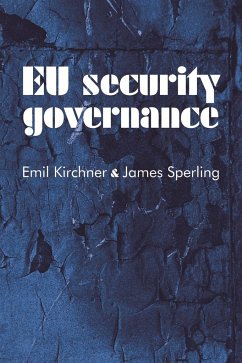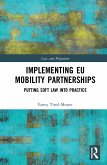EU security governance assesses the effectiveness of the EU as a security actor. The book has two distinct features. Firstly, it is the first systematic study of the different economic, political and military instruments employed by the EU in the performance of four different security functions. The book demonstrates that the EU has emerged as an important security actor, not only in the non-traditional areas of security, but increasingly as an entity with force projection capabilities. Secondly, the book represents an important step towards redressing conceptual gaps in the study of security governance, particularly as it pertains to the European Union. The book links the challenges of governing Europe's security to the changing nature of the state, the evolutionary expansion of the security agenda, and the growing obsolescence of the traditional forms and concepts of security cooperation.
Hinweis: Dieser Artikel kann nur an eine deutsche Lieferadresse ausgeliefert werden.
Hinweis: Dieser Artikel kann nur an eine deutsche Lieferadresse ausgeliefert werden.








